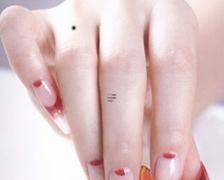Type 1: High intelligence line

People with a high intelligence line are known to be extremely intelligent, creative, and innovative. They excel in intellectual and creative fields such as science, technology, art, music, and literature. They have a great ability to think abstractly and are not afraid to challenge traditional ideas. Due to their exceptional problem-solving skills and critical thinking abilities, they tend to excel in fields that require high levels of analytical thinking and processing.
If you have a high intelligence line, you may be well-suited for a career in science or technology. Jobs in fields such as engineering, computer programming, or medical research may be a good fit for you. Alternatively, if you have a creative side, you may enjoy a career in the arts, where you can express your ideas and creativity freely.
Type 2: Low intelligence line
People with a low intelligence line are often creative and have a unique way of looking at the world. They tend to have strong intuition and connect well with others, making them great communicators. While they may not excel in traditional academic fields, they have a great ability to understand and connect with people on an emotional level.
If you have a low intelligence line, you may be well-suited for a career in a people-focused industry such as social work, counseling, sales or customer service. You may also enjoy working in a creative field such as media or marketing, where you can use your intuition and unique perspective to create engaging content.
Type 3: Curved intelligence line
People with a curved intelligence line are known to have a good balance between their intellectual and creative abilities. They are able to think critically and analytically, but also have a strong creative side that allows them to think outside the box. They tend to have a high level of emotional intelligence and are able to understand and connect with people on a deep level.
If you have a curved intelligence line, you may be well-suited for a career in a field that requires both analytical and creative skills, such as advertising, graphic design, or architecture. Alternatively, you may enjoy a career in a people-focused industry such as education, coaching, or counseling, where you can use your emotional intelligence to guide and inspire others.
In conclusion, the intelligence line provides insight into a person's intellectual and creative abilities, and can be used to determine the types of careers that are best suited for them. By understanding your intelligence line, you can choose a career that aligns with your strengths, passions, and interests, and achieve success and fulfillment in your professional life.
鄭重聲明:本文版權歸原作者所有,轉載文章僅為傳播更多信息之目的,如作者信息標記有誤,請第一時間聯系我們修改或刪除,多謝。



